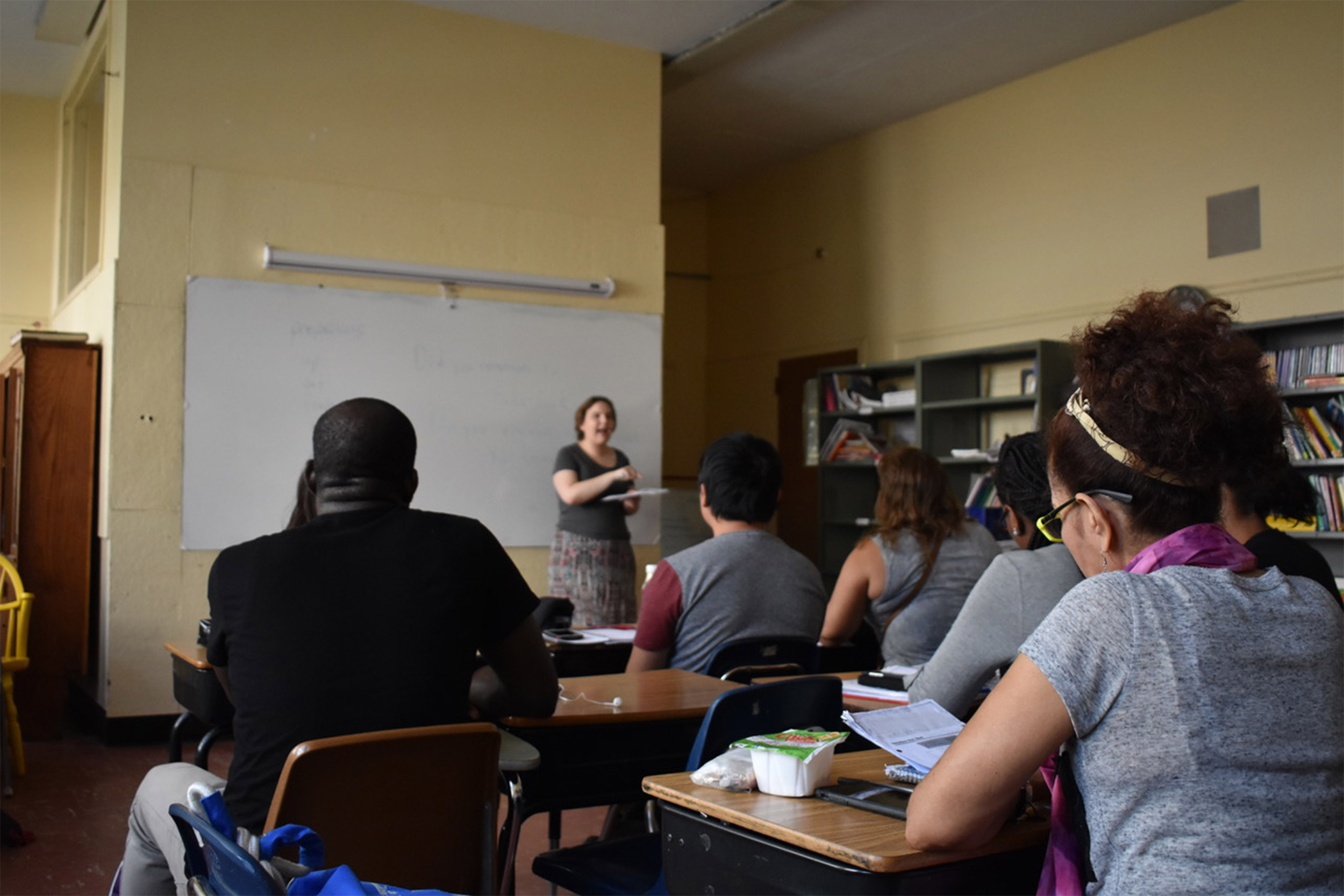
The Phillips Brooks House Association introduced a new program that teaches English to adult immigrants. PBHA previously had provided English courses during the school year, but never a summer program of this scope.
Courtesy of PBHA
Undergrads fill the gap
Through new program, Harvard students teach adults ESOL
Six Harvard College students taught English to new residents of Boston as part of the inaugural Phillips Brooks House Association (PBHA) Adult English for Speakers of Other Languages (ESOL) program.
The program was planned, created, and run by local college students, primarily those from Harvard College.
Jesper Ke ’19, one of the teachers, said he was inspired to get involved by his parents’ story.
“My parents immigrated to the U.S. nearly three decades ago from China and benefitted from free ESOL classes offered in the local community,” Ke said. “I’ve always seen my involvement in ESOL and naturalization-assistance courses as a way to pay it forward to other immigrants, especially those who don’t have as many resources to learn English.”
Before last summer, Ke had volunteered through PBHA with Chinatown Citizenship, a program that offers free English and naturalization assistance courses to immigrants. It was through this that he discovered significant gaps in ESOL programming in Boston. According to Boston Redevelopment Authority statistics, more than 4,000 individuals are on a waitlist for classes in Boston alone.
“I felt that one way to help temporarily fill some gaps would be to engage Harvard students with local community organizations to provide free ESOL courses this summer to as many immigrants as possible,” Ke said. PBHA previously had provided English courses during the school year, but had not had a summer program of this scope before.
Maria Carvahlo Tavares, who took the program in Dorchester this summer, described it as a rewarding experience and an effective way to help her strengthen her English-speaking skills.
“It was very effective and really allowed me to improve my English,” she said. “The teachers did a great job of guiding the students through informative exercises. I hope that they will publicize the program so that more students can learn from and enjoy this like I did.”
It takes a village to create a program like this from the ground up, and Jesper credits its many community partners for helping get things started.
“We established relationships with over 10 community partners through phone calls and in-person meetings, designing the weekly class structure, hiring staff, and identifying curriculum and assessment methods,” he said.
“Our main community partners were the Chinese Consolidated Benevolent Association in Boston’s Chinatown, St. Mark Community Education Program and VietAID in Dorchester, and Chelsea Collaborative in Chelsea. Our program wouldn’t have happened without them, because they understand the needs of their community far better than we do. Their advice allowed us to better tailor our curriculum to the unique needs of our learners, whether it was getting a job or visiting the doctor. Our partners also let us offer our classes in their spaces, which was much more convenient for our learners.”
Mike Oliver, director of the St. Mark Community Education Program, said working with Harvard’s students was the highlight of his involvement.
“They were responsible, enthusiastic, and dedicated,” Oliver said. “The learners were really pleased. At the end of the summer each class had a party where they thanked the Harvard students. It was a great experience and we’ve begun talking about a continued partnership.”
Over the summer the program served approximately 300 low-income, immigrant learners each week. Most learners attended class twice a week over the two months of the program. All classes were free, and were offered in Chinatown, Dorchester, and Chelsea. PBHA hopes to build on the program’s success and offer courses next summer.




